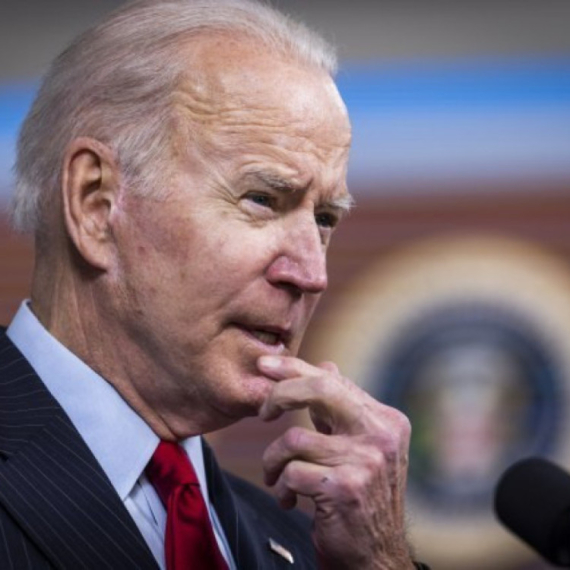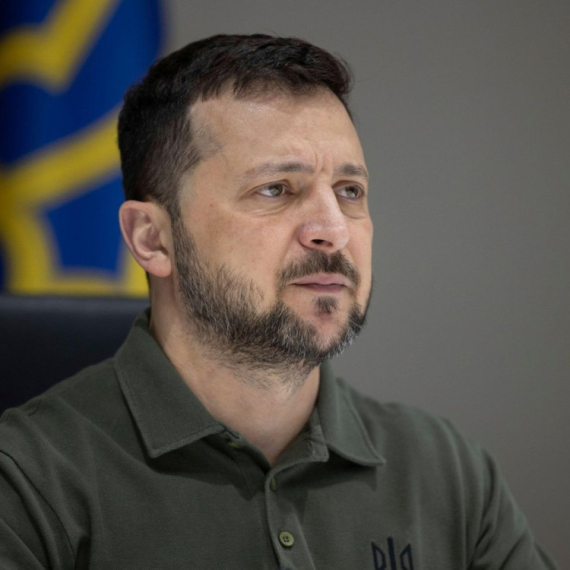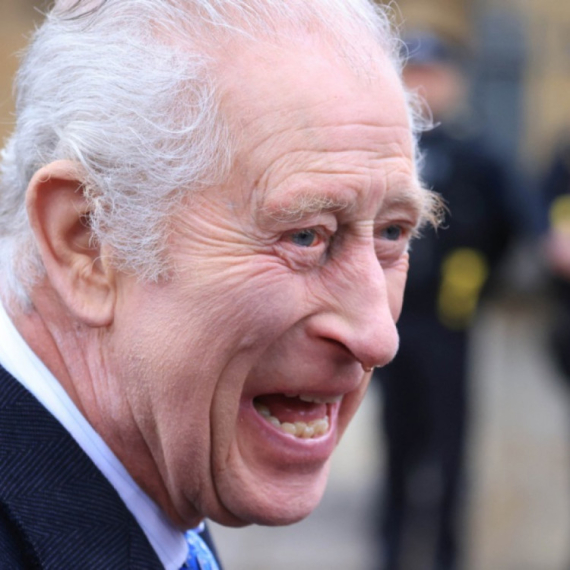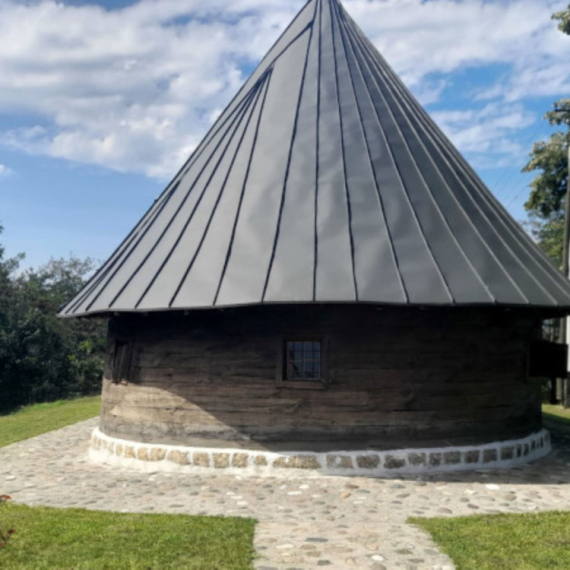NATO membership removed from PfP goals
Vuk Jeremić today in Brussels presented a document listing Serbia's goals in the Partnership for Peace program.
Wednesday, 05.09.2007.
09:44

Vuk Jeremic today in Brussels presented a document listing Serbia's goals in the Partnership for Peace program. B92 has learned that the document does not mention NATO membership as Serbia's eventual goal, rather only cooperation with the Alliance. NATO membership removed from PfP goals The foreign minister said that Serbia's main strategic tasks were "joining the EU and active participation in the Partnership for Peace". He also emphasized the country's readiness "to play a constructive role in strengthening stability in southeastern Europe." According to the foreign minister, who comes from President Boris Tadic's Democratic Party (DS), with its presentation document, Serbia "clearly demonstrated that it unequivocally believes in a strategy of intensive regional security cooperation", stating in detail the cooperation sectors it wishes to pursue within the PfP. "Serbia will never be able to forget the tragic events of 1999," Jeremic told his NATO interlocutors, however adding that the country must "look forward, not backward". He once again reiterated Belgrade's "readiness to achieve full cooperation" with the Hague Tribunal. B92 has learned that although the Ministry of Defense initially stated that Euro-Atlantic integrations, meaning eventual NATO membership, were its goals, this formulation has now been removed from the presentation document. The government is said to have adopted the document unanimously, but only after three failed attempts. In the end, the cabinet agreed on the wording in a phone conference, sources have confirmed. They added any parts suggesting Serbia may wish to become a NATO member in the future were removed from the paper, placing focus on "regional cooperation and a compromise solution for Kosovo." The next step ahead of Belgrade now should be the signing of a security agreement that regulates exchange of sensitive intelligence between Serbia and NATO, a precondition for Belgrade to set up its office with the Alliance headquarters in Brussels. However, it transpired Prime Minister Vojislav Kostunica, the leader of the Democratic Party of Serbia (DSS), opposed this agreement as well, blocking the government from adopting it. Today's news come in the wake of yesterday's decision by the DSS not to include Serbia's NATO membership in the party program. During August, a host of high ranking DSS officials with government portfolios ranging from education to interior affairs, and later on Kostunica himself, engaged in a war of words, accusing NATO of "setting up a military state in Kosovo to the detriment of Serbia." The current cabinet is made up of the Democratic Party, the Democratic Party of Serbia and New Serbia, who ran on the same ticket, and G17 Plus. Leaders of the DS and G17 Plus, Boris Tadic and Mladjan Dinkic, have previously based their policies on advocating Euro-Atlantic integrations for Serbia. Earlier today, Serbia’s ambassador to NATO Branislav Milinkovic told B92 that the document in question contained basic activities and goals Serbia wanted to realize by taking part in the PfP. He said it is a display of Serbia’s aspirations and interests in cooperation with NATO, and that the act of presenting the document constitutes an important step in the development of Serbia-NATO relations. “I believe this is a promotion of cooperation measured against our national interest in the fields we have chosen, including defense system reforms, military training, military exercises, scientific and medical cooperation, cooperation in cases of emergency, and more significant cooperation with KFOR,” he said. On the basis of this paper, Serbia and NATO will develop an individual partnership program that every subscribing state should have in place. “Today’s meeting is also a chance to promote a regular political dialogue with the North Atlantic Alliance,” Milinkovic added. Serbia was officially accepted into the PfP in December 2006. The program, as a NATO project established in 1994, aims to create trust between NATO and other states in Europe that have not yet joined the Alliance. It has 23 signatories so far. Vuk Jeremic (Tanjug) Ruling parties continue NATO argument A high ranking DSS official has Wednesday again called for a parliamentary vote on Serbia’s NATO future. Democratic Party of Serbia (DSS) Vice-President and Energy Minister Aleksandar Popovic reiterated his party’s position that parliament should decide whether or not Serbia should join NATO. He told Tanjug news agency that the DSS included in its manifesto a provision saying that it was against Serbia entering the NATO Pact. “It is our principled position, and it is our recommendation to other parties, that parliament should adopt a decree according to which Serbia could not join NATO, should its member states unilaterally recognize a Kosovo proclamation of independence,” said Popovic. In the meantime, Democratic Party (DS) caucus chief Nada Kolundzija said she hoped Serbia would not have a special reason to revise the position it had adopted earlier regarding NATO membership. “I believe Serbia’s European path will not come into question in spite of the differences emerging among the ruling parties over the issue,” she said, and added that NATO and EU membership should be seen as a better future for Serbia. “I hope there’s a high level of political responsibility from all those in charge of public and state affairs and that a wise decision will be made in the end,” Kolundzija told Tanjug. She remarked that NATO membership “is a serious issue that should not be considered and handled from a partisan perspective, rather discussed in all expert, political quarters and debated in public before a decision in Serbia’s best interests is taken.”
NATO membership removed from PfP goals
The foreign minister said that Serbia's main strategic tasks were "joining the EU and active participation in the Partnership for Peace".He also emphasized the country's readiness "to play a constructive role in strengthening stability in southeastern Europe."
According to the foreign minister, who comes from President Boris Tadić's Democratic Party (DS), with its presentation document, Serbia "clearly demonstrated that it unequivocally believes in a strategy of intensive regional security cooperation", stating in detail the cooperation sectors it wishes to pursue within the PfP.
"Serbia will never be able to forget the tragic events of 1999," Jeremić told his NATO interlocutors, however adding that the country must "look forward, not backward".
He once again reiterated Belgrade's "readiness to achieve full cooperation" with the Hague Tribunal.
B92 has learned that although the Ministry of Defense initially stated that Euro-Atlantic integrations, meaning eventual NATO membership, were its goals, this formulation has now been removed from the presentation document.
The government is said to have adopted the document unanimously, but only after three failed attempts.
In the end, the cabinet agreed on the wording in a phone conference, sources have confirmed.
They added any parts suggesting Serbia may wish to become a NATO member in the future were removed from the paper, placing focus on "regional cooperation and a compromise solution for Kosovo."
The next step ahead of Belgrade now should be the signing of a security agreement that regulates exchange of sensitive intelligence between Serbia and NATO, a precondition for Belgrade to set up its office with the Alliance headquarters in Brussels.
However, it transpired Prime Minister Vojislav Koštunica, the leader of the Democratic Party of Serbia (DSS), opposed this agreement as well, blocking the government from adopting it.
Today's news come in the wake of yesterday's decision by the DSS not to include Serbia's NATO membership in the party program.
During August, a host of high ranking DSS officials with government portfolios ranging from education to interior affairs, and later on Koštunica himself, engaged in a war of words, accusing NATO of "setting up a military state in Kosovo to the detriment of Serbia."
The current cabinet is made up of the Democratic Party, the Democratic Party of Serbia and New Serbia, who ran on the same ticket, and G17 Plus.
Leaders of the DS and G17 Plus, Boris Tadić and Mlađan Dinkić, have previously based their policies on advocating Euro-Atlantic integrations for Serbia.
Earlier today, Serbia’s ambassador to NATO Branislav Milinković told B92 that the document in question contained basic activities and goals Serbia wanted to realize by taking part in the PfP.
He said it is a display of Serbia’s aspirations and interests in cooperation with NATO, and that the act of presenting the document constitutes an important step in the development of Serbia-NATO relations.
“I believe this is a promotion of cooperation measured against our national interest in the fields we have chosen, including defense system reforms, military training, military exercises, scientific and medical cooperation, cooperation in cases of emergency, and more significant cooperation with KFOR,” he said.
On the basis of this paper, Serbia and NATO will develop an individual partnership program that every subscribing state should have in place.
“Today’s meeting is also a chance to promote a regular political dialogue with the North Atlantic Alliance,” Milinković added.
Serbia was officially accepted into the PfP in December 2006.
The program, as a NATO project established in 1994, aims to create trust between NATO and other states in Europe that have not yet joined the Alliance. It has 23 signatories so far.
Ruling parties continue NATO argument
A high ranking DSS official has Wednesday again called for a parliamentary vote on Serbia’s NATO future.Democratic Party of Serbia (DSS) Vice-President and Energy Minister Aleksandar Popović reiterated his party’s position that parliament should decide whether or not Serbia should join NATO.
He told Tanjug news agency that the DSS included in its manifesto a provision saying that it was against Serbia entering the NATO Pact.
“It is our principled position, and it is our recommendation to other parties, that parliament should adopt a decree according to which Serbia could not join NATO, should its member states unilaterally recognize a Kosovo proclamation of independence,” said Popović.
In the meantime, Democratic Party (DS) caucus chief Nada Kolundžija said she hoped Serbia would not have a special reason to revise the position it had adopted earlier regarding NATO membership.
“I believe Serbia’s European path will not come into question in spite of the differences emerging among the ruling parties over the issue,” she said, and added that NATO and EU membership should be seen as a better future for Serbia.
“I hope there’s a high level of political responsibility from all those in charge of public and state affairs and that a wise decision will be made in the end,” Kolundžija told Tanjug.
She remarked that NATO membership “is a serious issue that should not be considered and handled from a partisan perspective, rather discussed in all expert, political quarters and debated in public before a decision in Serbia’s best interests is taken.”



























































Komentari 27
Pogledaj komentare